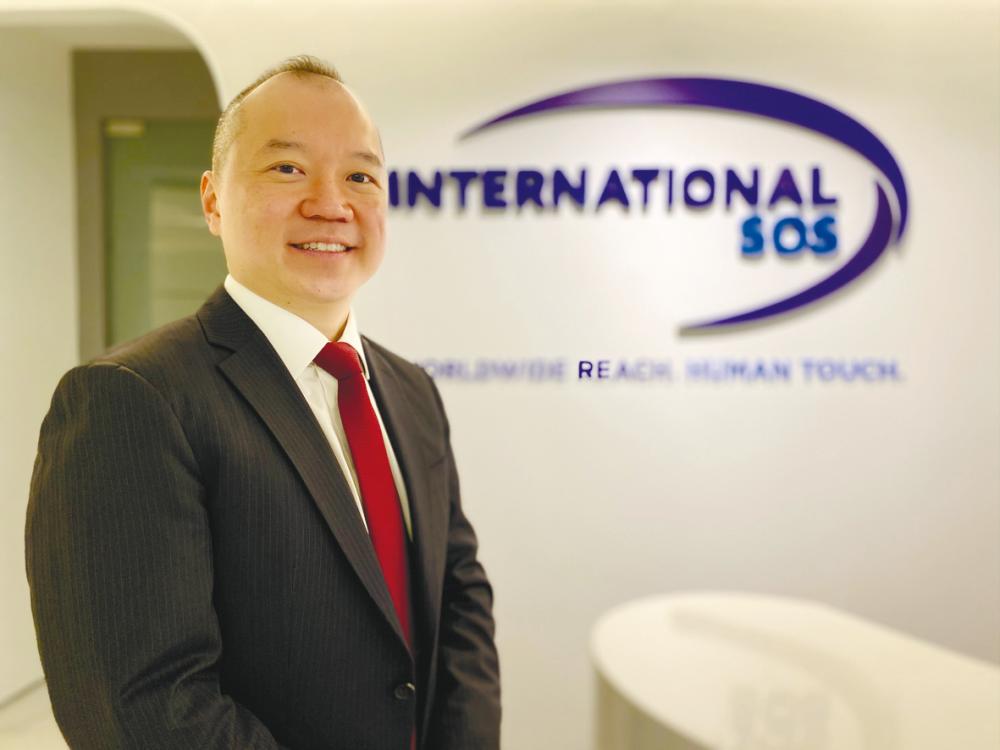PETALING JAYA: To ease the return-to-office process following long periods of lockdown, it is crucial for companies to develop a return-to-work plan while providing ongoing health support.
International SOS regional general manager and director of Southeast Asia Jing Tan said companies need to learn the latest best practices of crisis management as crisis planning is becoming more agile and adaptive. Employees’ health and wellbeing are being considered as an integral part of the crisis planning.
“Companies should evaluate their business continuity plan, conduct crisis management gap analysis and have the ability to access accurate and timely information about the pandemic and local regulations. The goal is to have a clear structure and process in place to help companies anticipate, adapt and respond to disruptions while ensuring the health, safety and wellbeing of employees are safeguarded while business continues to operate seamlessly,“ Tan told SunBiz.
“Although the hybrid workplace arrangement may give both organisations and employees some benefits, our view is that we will not be able to get away with working from the office. It is important to continue to have live human engagements and only with human touch that we are able to build culture at the same time,“ said Tan.
International SOS has developed a safe return-to-work solution, namely its “WorkSafe” programme to address the imminent needs of organisations and to safeguard the health and safety of the workforce.
“Through our monitoring of the pandemic, we proactively advise organisations on the ways to protect employees and their workplaces by preventing Covid-19 transmissions and in managing positive cases. In addition, we also help organisations source personal protective equipment, testing kits and implement overall testing and vaccination programmes,“ Tan said.
By now, he added that organisations should also have well-designed, robust resilient workforce and crisis management programmes. These programmes help the companies to anticipate, adapt and respond to major disruptions while ensuring that employees and assets are safeguarded while supporting operational continuity.
By partnering with International SOS, Tan said its workforce resilience programme will provide health, security and wellbeing support services to management and people managers. These include expert health and security information, advice through 24/7 assistance centres, home country and overseas assistance, confidential mental health support, international employee assistance programme, tele-consultation with licensed doctors and provision of alerts and location advice for the entire workforce.
Echoing this sentiment, JobStreet Malaysia managing director Vic Sithasanan said getting one’s team back to the office will need some planning.
“It would help to look at returning to office in phases. A company could start with just important meetings happening face-to-face, then perhaps a few days a week at the office, and then slowly increase that to full-time back to office. Do ensure the experience in the office is delightful. Perhaps everyone gets lunch or healthy snacks, so coming back to the office feels rewarding.
“Working in the office definitely builds camaraderie and culture. There’s just no alternative to face-to-face interactions for brainstorming and problem solving tasks,“ he told SunBiz.
Amid the increased sentiment of work-from-office stress, returning-to-office anxiety, and movements in the workforce, Vic highlighted that often finding replacement talent takes longer than the notice period of the incumbents. This leaves gaps and further burdens the team, exacerbating the problem.
“Companies should create a cadence running engagement surveys so problems can be spotted before they become real issues. Locking down employees with thoughtful long term incentive plans, looking after their family members as part of the company health policies, etc, will make a huge difference in retention rates.”
He pointed out that there is a larger disconnect between Gen Z/millennials and employers, rather than their Gen Y/baby boomer counterparts. One key factor contributing to Gen Z/millennials leaving their jobs in the US in relation to the Great Resignation phenomenon is due to burnout and mental health.
“Apart from prioritising their mental health and work life balance, we also need to look at the generational factors and a lot of Gen Z are entering the workplace with a pandemic mindset,” said Vic.
Online mentorship platform FutureLab founder Brian Tan said post-Covid-19, there is an increase in need for social media marketers, digital marketers, software engineers, content creators and data scientists.
“Some employees will be wary about losing their jobs to automation, especially jobs that are low skilled and repetitive. They may be looking at other ways of earning an income such as gig economy work since e-commerce has grown rapidly during the lockdown. Some employees will be looking at developing their digital skillsets through online courses and programs to ensure that they stay relevant as industries go through digitalisation.”
He added that employers looking to maintain a lean team to minimise their overheads will be looking to upskill and reskill their existing employees to adapt to this new way of work, or hire candidates with digital skills that can help market and sell their products online. Employers who have adapted to operating digitally will be looking to scale up their teams but might find it hard to find the digital talent they need.
“Companies that are struggling to survive will find it hard to come up with the budget needed to train their employees. In this scenario, it’s important for these companies to adopt a learning culture where employees train each other.”













